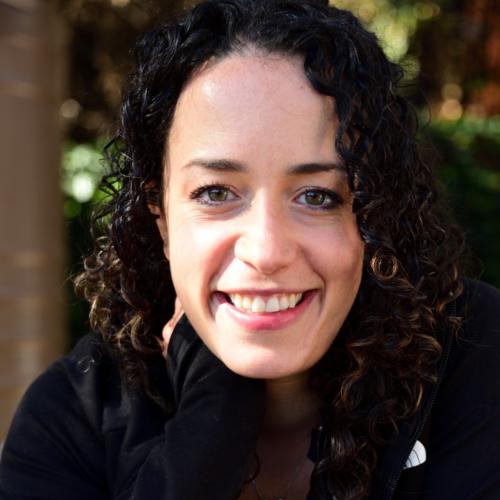English with a Certificate in African Studies
Ph. D.
Northwestern University
2019

Susanna Sacks joined Howard’s English department this fall as Assistant Professor of Comparative Literature. Prior to coming to Howard, she worked at the College of Wooster, where she taught courses on literature and media studies, and at Northwestern University, where she completed her Ph. D. in English and African Studies in 2019.
Sacks’s research examines the influence of digital publication and transnational institutions on African poetic forms and networks in the twenty-first century. Her work draws on performance studies frameworks and sociological methods to examine digital cultural norms, asking: how have changing media platforms and global institutions influenced the relationship between poetic forms and literary art worlds? Her first book project, Networked Poetics: African Poetry’s Digital Turn—which will be published with UMass press next year—argues that the rise of social media platforms catalyzed a transformation in the production of cultural capital in southern Africa. Examining poetry through the social structures and media in which it is embedded, Networked Poetics builds on eighteen months of fieldwork and archival research to show how writing, and specifically poetry, is produced in Africa today: across digital and live spaces of production, shaped by regional communities, yet in tension with algorithmic constraints developed in the Global North. Research based on this project has won awards from the African Literature Association and the African Studies Association, and been published in top journals including African Studies Review, ASAP/Journal, PMLA, and Research in African Literatures.
Ph. D.
Northwestern University
2019
M.A.
Northwestern University
2015
B.A.
Haverford College
2013
“Poetry Across Cultures” introduces students to critical techniques of poetry analysis in order to examine poetry’s place in our world. Poetry is a political act, launching new worlds with individual voices. From ritual chants to epics, from praise poems to sonnets, poets use their words and their voices to reflect on the world as it is, and to imagine new possibilities. This course focuses on the choice of style and genre that offer specific creative and interpretive possibilities to the poet. We will ask: what is poetry, and what does it do? What gives it power? Through the course, students will learn to analyze poetry as an artistic and cultural form, exploring how literary form intersects with social structures to create meaning.
Whatever limits can be imagined – in terms of geography, genre, language, audience, era – African literatures exceed them.
– Wendy Belcher, Early African Literature from 3000 BCE to 1900 CE
People have been writing in, on, for, and about African for thousands of years. But in the West, we have tended to neglect those narratives in favor of limited stories of war and poverty. This class explores how African writers since the 1920s have used literature to rewrite their history, reconfigure the present, and reimagine the future. We will ask: what role does narrative and storytelling have in expressing grievances and mobilizing communities? And what responsibility does a writer have to his or her community? By reading texts from across the continent, students will be introduced to the diverse issues facing African writers and to new ways of thinking about familiar topics like climate change, social media, and globalization.
"Art of the Essay" offers students the unique opportunity to design and pursue research projects of their own design, investigating topics of interest across a range of discursive spaces and contexts.